
The following is a guide to the different types of certification listing marks that you will most commonly encounter. The listing marks signify that a product has either been tested by a Nationally Recognized Testing Laboratory and met their standards, or has met the standards required for a product to be sold or manufactured in a specific area such as the CE Mark for the European Economic Area. Each mark has its own set of standards, though many of the standards are similar across the board. In some cases, marks will have OSHA accepted alternatives because a similar mark may have the same or a higher set of standards. Many of these marks are universally recognizable and can be seen on the majority of consumer products.
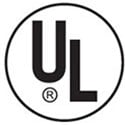

The UL Listing Mark
This mark shows that a product has been tested by Underwriters Laboratories, and that the product has met the UL requirements. The requirements that must be met are based on UL's nationally recognized Standards for Safety. The listing mark appears on end products and complete components that are suitable for factory and field installation. All products bearing these marks are covered by the Follow-Up Services program, which ensures that products continue to be manufactured in compliance with UL's safety requirements. These marks are seen commonly on appliances and computer equipment, furnaces and heaters, fuses, electrical panel boards, smoke and carbon monoxide alarms, fire extinguishers and sprinkler systems, personal flotation devices, bullet resistant glass, and thousands of other products. Product testing can be verified through UL directories online.
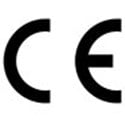

The CE Mark
The CE mark is a mandatory conformity marking on products sold within the European Economic Area (EEA). The CE marking indicates a product's compliance with EU legislation and so enables the free movement of products within the European market. By affixing the CE marking to a product, a manufacturer declares, on his sole responsibility, that the product meets all the legal requirements for the CE marking, which means that the product can be sold throughout the European Economic Area (EEA, the 28 Member States of the EU and European Free Trade Association (EFTA) countries Iceland, Norway, Liechtenstein). This standard also applies to products made in other countries with the intentions of being sold in the European Economic Area. CE marking does not indicate that a product was made in the EEA, but merely states that the product has been assessed before being placed on the market and thus satisfies the applicable legislative requirements enabling it to be sold there. It means that the manufacturer has: verified that the product complies with all relevant essential requirements (e.g. health and safety or environmental requirements) laid down in the applicable directive(s) and if stipulated in the directive(s), had it examined by an independent conformity assessment body. It is the manufacturer's responsibility to carry out the conformity assessment, to set up the technical file, to issue the declaration of conformity and to affix the CE marking to a product. Distributors must check that the product bears the CE marking and that the required supporting documentation is in order. If the product is being imported from outside the EEA, the importer has to verify that the manufacturer has undertaken the necessary steps and that the documentation is available upon request.
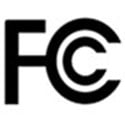

The FCC Declaration of Conformity
The FCC Mark is a certification mark for electronic products that are sold or manufactured within the United States. The mark is given to products that meet the Federal Communications Commission's standards for acceptable electromagnetic interference levels. The FCC mark is also found on products outside of the US as it is required for products whose primary market is the US, but may still be sold domestically such as China or Japan. The Federal Communications Commission (FCC) is an independent United States government agency that is directly responsible to Congress. The FCC was established by the Communications Act of 1934 and is charged with regulating interstate and international communications by radio, television, wire, satellite and cable.
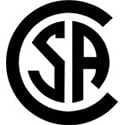

The CSA Mark
CSA International (Canadian Standards Association), a member of the CSA Group, is a provider of product testing and certification services for electrical, mechanical, plumbing, gas and a variety of other products. Recognized in the U.S., Canada and around the world, CSA's marks appear on billions of products worldwide.The CSA mark on a product certifies that a sample product has met the applicable standards of the CSA, as well as standards from other organizations such as the American National Standards Institute, Underwriters Laboratories, NSF International, and others. According to OSHA regulations, the CSA-US Mark qualifies as an alternative to the UL Mark.
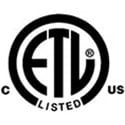

The ETL Mark
Intertek is an OSHA (Occupational Safety & Health Administration) recognized NRTL (Nationally Recognized Testing Laboratory) and is accredited as a Testing Organization and Certification Body by the Standards Council of Canada. ETL was acquired by Intertek Testing Services from Inchcape, ITS is recognized by OSHA as a Nationally Recognized Testing Laboratory, same as UL or CSA. Similar to other standard marks, the ETL Listed Mark certifies products through independent testing, and periodic follow up inspections to ensure that the standards continue to be met.





Login and Registration Form